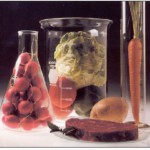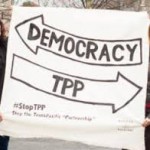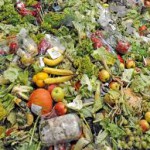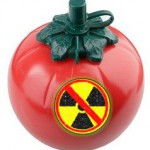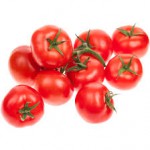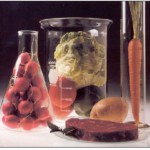 Food Irradiation Watch
Food Irradiation Watch
Media Release
May 23, 2013
Irradiated tomatoes and capsicums to be sold without labels
“Weak labelling laws mean that irradiated tomatoes and capsicums may start to appear in our shops without individual labelling,” warns Food Irradiation Watch spokesperson Robin Taubenfeld.
“Shoppers in southern states and New Zealand must keep a particular eye out for Queensland tomatoes,” Ms. Taubenfeld adds.
Current laws allow shops to use a sign close by to irradiated produce, rather than actual stickers or labels.
“Food Irradiation Watch advises shoppers wishing to avoid irradiated produce to look down at the produce to see if there is a sticker and then look up to see if there is a sign.”
“It is greatly disappointing that the Ministerial Council did nothing to block this approval and will allow irradiated produce to be sold unlabelled.” said spokesperson Robin Taubenfeld.
“Irradiation is not only unnecessary, but it unnecessarily puts consumers and Australian horticulture at risk.”
Numerous scientific studies have highlighted the potential risks associated with consuming irradiated food. Irradiation reduces the vitamin and nutritional content of food and can produce new harmful chemicals in food, such as benzene, formaldehyde and cyclobutanones.
“The government and industry have been using the phase out of some pesticides as an excuse to push for more irradiation approvals,” Ms.Taubenfeld states, “but substituting one risky process with another is not acceptable.”
“According to our research, there are 16 further approvals in the pipeline, including zucchinis, honey dew melons, rockmelons , nectarines, strawberries, cherries, apricots , plums, peaches, table grapes, and apples.”
“Knowing that people do want to consume irradiated food, the industry has long pushed for weak labelling laws, such as the ones we have today. Now alarmingly, Australia is poised to get rid of labelling all together; FSANZ will be undertaking a review of mandatory irradiation labelling next year.”
“Good food doesn’t need irradiating. Irradiated food does require labelling. The fight is now on to make sure that labelling laws are not only kept in place, but improved to ensure that consumers have the right to choose.”
For more information or comment contact:
Food Irradiation Watch – Friends of the Earth Brisbane: Robin Taubenfeld 0411 118 737

